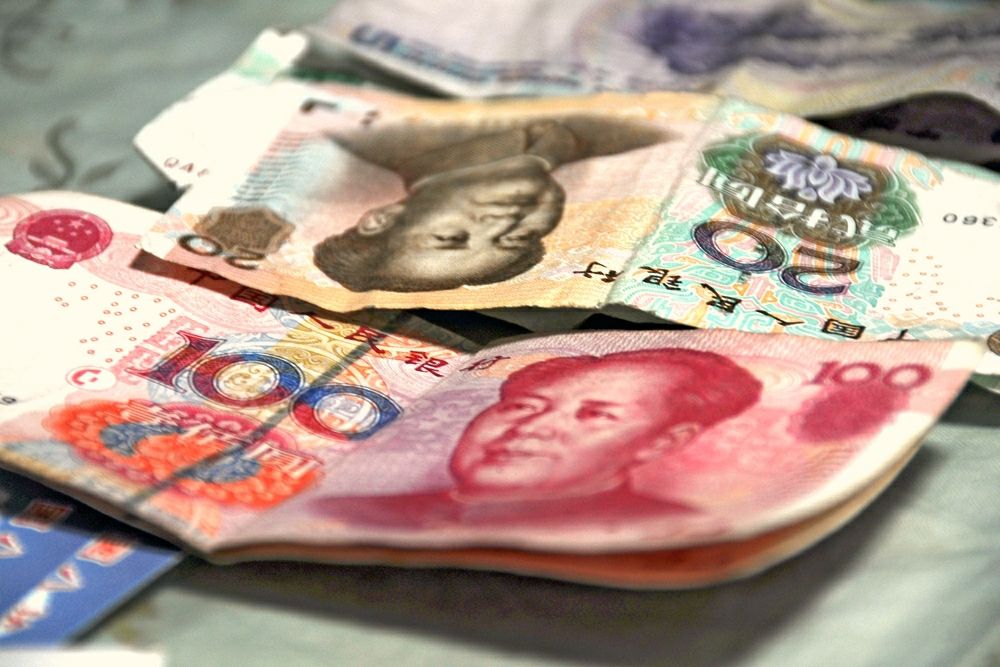Record Demand for Yuan as Dollar Scarcity Grips Argentina

The Lede: A shortage of U.S. dollars in Argentina has led the country to increase a currency swap arrangement with China so more companies in the South American country could use the Renminbi, or yuan, to pay for imports, services and debts. Argentine Economy Minister Sergio Massa last month announced the two countries had agreed on an expanded swap line of 130 billion yuan, around $18 billion. In June, he said at a press conference that hundreds of companies in Argentina were taking advantage of a new streamlined approval mechanism to use the Chinese currency for payment.
What we know:
- According to Bloomberg, the Argentine customs agency disclosed that more than 500 companies have formally requested to use Chinese yuan for making payments related to imports across diverse sectors, including electronics, auto parts, textiles, oil, and mining.
- Among these companies is Whirlpool, the home appliance manufacturer based in Benton Harbor, Michigan, that had previously invested US$52 million in a factory near Buenos Aires to produce washing machines and other appliances. Facing challenges in importing goods due to the tightening availability of U.S. dollars and experiencing production interruptions in recent months because of shortages, Whirlpool is now contemplating the possibility of using the Chinese yuan as a payment method for certain inputs, Bloomberg reported. The move would help the company secure a consistent supply of essential electronic components necessary for its manufacturing operations.
- In Argentina, the use of the Chinese yuan has surged to unprecedented levels, reaching a new peak. As per statements from officials at Argentina's central bank, import payments authorized in Chinese yuan have reached a significant sum of $2.9 billion. During the initial ten days of June, the total value of yuan transactions in Argentina's currency market amounted to around US$285 million, which is twice the amount recorded for the entire month of May, Bloomberg reported.
- Meanwhile, Mirgor and Newsan, both companies based in Tierra del Fuego, have willingly made the decision to convert their upcoming debt payments from U.S. dollars to yuan, amounting to a total of US$630 million. Official sources have confirmed that other corporations are also expected to follow suit, contributing to the trend of shifting to yuan, according to the Buenos Aires Herald.
- Just recently Argentinian government took an unprecendented step and fulfilled a payment obligation to the International Monetary Fund (IMF) by using Chinese yuan, amounting to one billion U.S. dollars. The funds were initially earmarked for financing imports from China. However, officials saw the possibility of utilizing the money for alternative purposes.
The background: Argentina has experienced a sharp depreciation of its currency, with a 50% loss in value over the past year, representing the worst performance among emerging markets during this period. The Argentinian government has recently announced that the trade deficit in May amounted to US$1.2 billion, marking the largest deficit since 2018 when a currency crisis emerged. The country's Central Bank is facing significant challenges, as its dollar reserves have reached their lowest level since 2016. Attributed, in part, to a drought when approximately $20 billion worth of crop exports were destroyed, the development further complicated international trade. But it created new opportunities for China, which has accelerated its efforts to internationalize the yuan and challenge the dollar’s dominance. Since 2009, Argentina and its second major trade partner, China, have maintained a bilateral swap agreement, and more recently, Beijing granted Argentina access to more than half of an $18 billion currency swap line. In May, Argentina announced that it would use yuan instead of U.S. dollars to pay for Chinese imports, following in the footsteps of its neighbor Brazil. Sergio Massa, the Economy Minister said, opting to conduct payments in yuan would positively impact Argentina's net reserves outlook and enable the country to maintain its level of economic activity, trade volume, and economic interactions with China.
Likely outcomes/Takeaway:
- The trend might have an economic appeal for Argentina as it is expected to provide immediate relief to the Central Bank, relieving the pressure on its reserves. The government might aim to maximize the utilization of yuan for operations originating from China, thereby freeing up their dollars for alternative purposes - expediting other import activities or intervening in the markets to control financial dollar rates.
- As for China, Argentina’s shift to the yuan contributes to its overall geopolitical agenda which includes promoting the yuan as an alternative to the U.S. dollar. It adds to the existing trend of utilizing the yuan for settling international trade transactions, which signifies the growing significance of the yuan in the global financial system. If more countries join Argentina, Brazil, Russia, and others in using yuan for international trade, consequently it might cause a shift in the balance of economic power and the dynamics of global trade.
Quotables:
- “It [the agreement] gives us greater freedom and gives the Central Bank greater operational capacity. We’ve had to intervene over the past few days due to people speculating and over-speculating with the idea that we as a state don’t have the economic capacity.” – Sergio Massa, Argentina’s Economy Minister.
- “More and more countries are willing to use the renminbi in clearing and payments, which is a significant step for yuan internationalization,” Zhu Min, vice-chairman of the China Center for International Economic Exchanges.
- “For Argentina, its currency ties to China represents an emergency, but for China, it's a point of leverage to take advantage of a geopolitical opportunity,” Marcelo Elizondo, a trade economist in Buenos Aires.
Good Reads:
Argentina's use of Chinese yuan is soaring as dollars run short, and a top US manufacturer may join the trend (Markets Insider)
Brazil's Suzano SA and Yuan Adoption Reflect Shift from Dollar Dominance in Commodity Markets (China Paper)
More Argentine companies switch dollar debts into yuan (Buenos Aires Herald)
